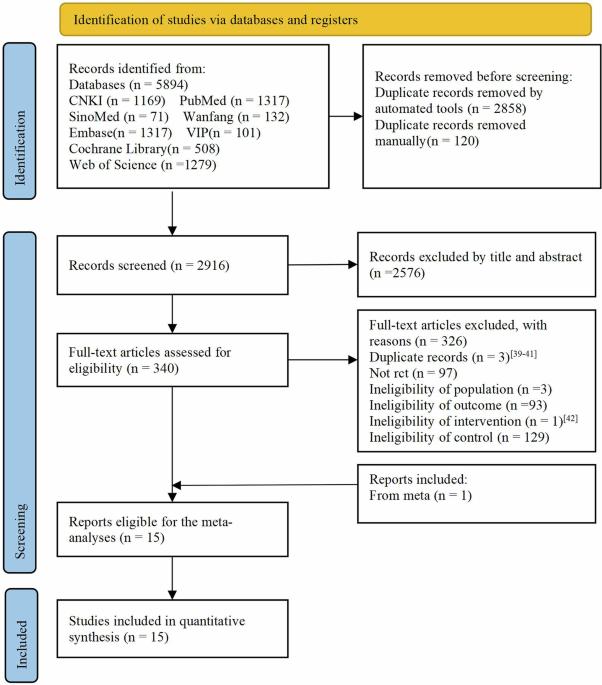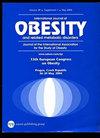Effectiveness and safety of intermittent fasting on blood pressure in adults with overweight or obesity: a systematic review
IF 3.8
2区 医学
Q1 ENDOCRINOLOGY & METABOLISM
引用次数: 0
Abstract
Previous intermittent fasting (IF) studies have reported inconsistent findings regarding its antihypertensive effects and safety. This study aimed to assess the effects and safety of IF on blood pressure (BP), anthropometrics, and cardiometabolic risk markers in individuals with overweight or obesity compared to a no-intervention control group. Relevant studies were retrieved from multiple databases, including CNKI, Wanfang, VIP, SinoMed, PubMed, Embase, the Cochrane Library, and Web of Science, up to April 30, 2024. A meta-analysis was performed using Stata version 18.0 and RevMan 5.4, calculating mean differences (MD) or risk ratios (RR) with 95% confidence intervals (CI) via the Knapp-Hartung modified random-effects model. Publication bias was evaluated using a contour-enhanced funnel plot and Egger’s test. Fifteen studies (n = 929) were included. IF significantly reduced systolic blood pressure (SBP) (MD = –4.43 mmHg, 95% CI: –5.83 to –3.03, p < 0.001) and diastolic blood pressure (DBP) (MD = –2.00 mmHg, 95% CI: –3.23 to –0.78, p < 0.001) compared to control. IF also improved anthropometric measures, Homeostatic Model Assessment of Insulin Resistance (HOMA-IR), and Triglycerides (TG). Seven studies reported minor adverse effects. Although the IF group showed a higher risk of vomiting (RR = 1.11, 95% CI: 1.04–1.19, p = 0.01) and irritability (RR = 1.22, 95% CI: 1.13–1.31, p < 0.001) compared to the control group, these reactions were predominantly observed during the initial phase of the intervention and were self-resolving. IF significantly lowered SBP and DBP in individuals with overweight or obesity, particularly in high-risk subgroups (obesity, age ≥45 years, and prehypertension/hypertension), with a favorable safety profile. Due to heterogeneity, future trials should standardize IF regimens and target these subgroups to confirm generalizability. The review protocol has been registered on PROSPERO (CRD42024540777).

间歇性禁食对超重或肥胖成人血压的有效性和安全性:一项系统综述
背景:先前的间歇性禁食(IF)研究报告了关于其降压效果和安全性的不一致的发现。目的:本研究旨在评估与无干预对照组相比,IF对超重或肥胖个体的血压(BP)、人体测量学和心脏代谢风险指标的影响和安全性。方法:检索截至2024年4月30日的CNKI、万方、维普、国药网、PubMed、Embase、Cochrane Library、Web of Science等数据库的相关研究。使用Stata version 18.0和RevMan 5.4进行meta分析,通过Knapp-Hartung修正随机效应模型计算95%置信区间(CI)的平均差异(MD)或风险比(RR)。采用轮廓增强漏斗图和Egger检验评估发表偏倚。结果:纳入15项研究(n = 929)。IF可显著降低收缩压(SBP) (MD = -4.43 mmHg, 95% CI: -5.83 ~ -3.03, p)。结论:IF可显著降低超重或肥胖个体的收缩压和舒张压,特别是在高危亚组(肥胖、年龄≥45岁、高血压前期/高血压),且具有良好的安全性。由于异质性,未来的试验应该标准化IF方案,并针对这些亚组来确认普遍性。临床试验注册:审查方案已在PROSPERO注册(CRD42024540777)。
本文章由计算机程序翻译,如有差异,请以英文原文为准。
求助全文
约1分钟内获得全文
求助全文
来源期刊

International Journal of Obesity
医学-内分泌学与代谢
CiteScore
10.00
自引率
2.00%
发文量
221
审稿时长
3 months
期刊介绍:
The International Journal of Obesity is a multi-disciplinary forum for research describing basic, clinical and applied studies in biochemistry, physiology, genetics and nutrition, molecular, metabolic, psychological and epidemiological aspects of obesity and related disorders.
We publish a range of content types including original research articles, technical reports, reviews, correspondence and brief communications that elaborate on significant advances in the field and cover topical issues.
 求助内容:
求助内容: 应助结果提醒方式:
应助结果提醒方式:


